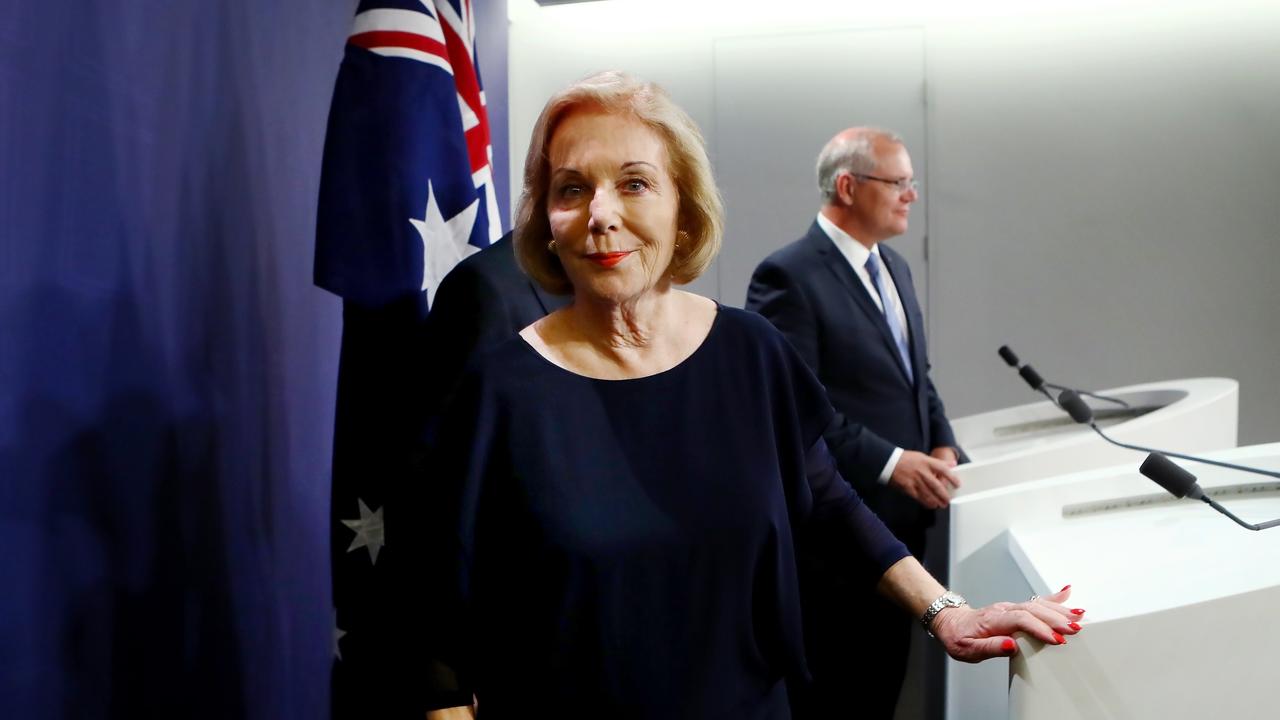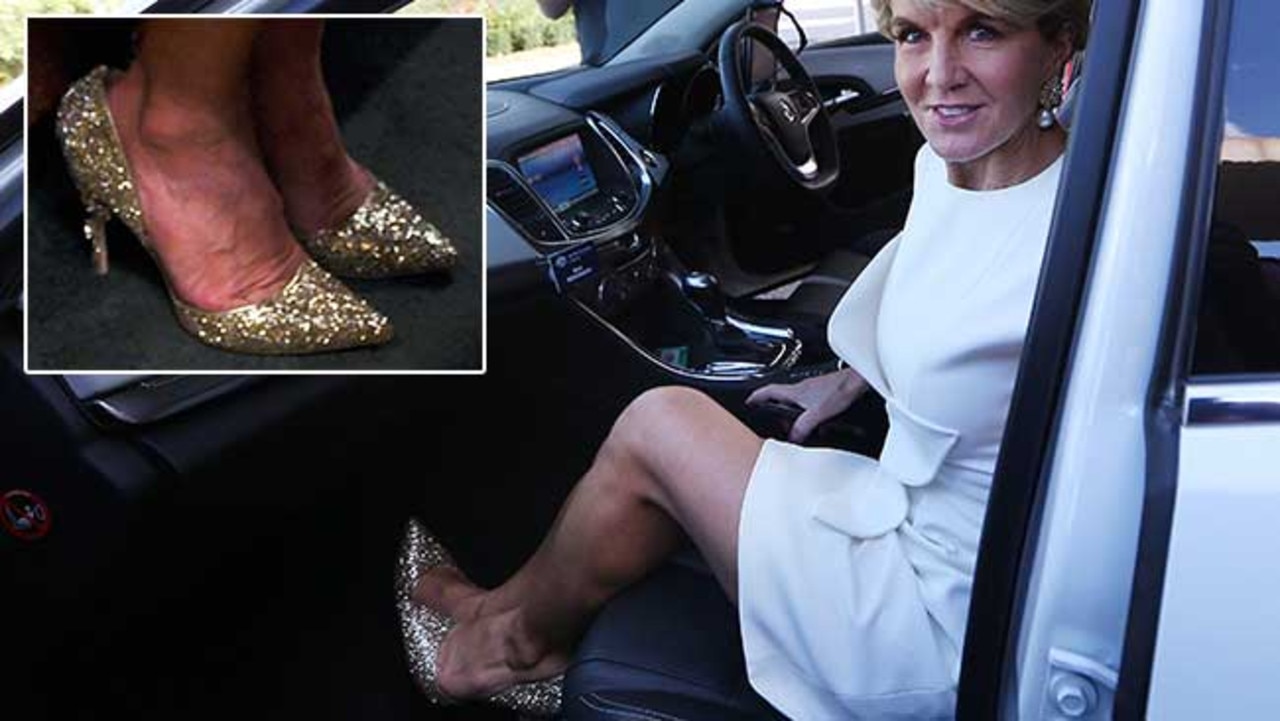
NSW has a new Premier, Gladys Berejiklian, and she is not married and has no children. We know because she was asked about it during her first 15 minutes on the job.
A number of commentators got huffy about that, saying: “When was the last time a male premier was asked about his family during his first day in office?”
In actual fact, that happens all the time, and it’s mainly the bloke who brings it up.
“I’d like to thank my wife,” he’ll say during his speech to announce his ascension. “She’s been a wonderful support to me. And did I mention my children? I’m so proud of them.”
Which got me thinking: are women in high office less likely to have children, or just more likely to be asked about it? Let’s look at some case studies.
Australia has had one female prime minister, Julia Gillard. She was childless or, to put it as charmlessly as the former senator Bill Heffernan once did, she kept herself “deliberately barren” as she made her way from Unley High in Adelaide to the Lodge.
So, 100 per cent of Australia’s female prime ministers has been childless.
NSW has had two female premiers. The first one, Labor’s Kristina Keneally, had two children, both school age, while in office; the current one — Berejiklian — has none. So, 50 per cent of NSW’s female premiers have been childless.
Queensland has had two female premiers, one of whom, Anna Bligh, had children, while the other one — the current Premier, Annastacia Palaszczuk — does not. So … well, I’m sure you get the picture, and I’m sure you can also immediately see the problem with using figures such as these.
The number of women who have actually reached high office is so tiny that any attempt to draw statistics ends up skewed.
The statistics are therefore meaningless. One could just as easily say: OK, but Quentin Bryce had children, so it’s only mothers who get to be female governors-general.
And yet … the first woman premier in Tasmania, Lara Giddings, has no children. Australia’s most senior federal cabinet minister, Foreign Minister Julie Bishop, has no children. Australia’s first female chief justice of the High Court, Susan Kiefel, has no children.
Theresa May, Prime Minister of Britain, has no children; Angela Merkel, known as Mutti (mother) in Germany, has no children; Condoleezza Rice, who became the first African-American secretary of state under president George W. Bush, has no children.
No children, no children, no children. For women, being childless seems to be key to holding high office. Not in every case. But in many cases.
What, if anything, does this realisation tell us? That it’s still really tough for women to get to the top, obviously, and more so when they have kids?
I think that’s a fair thing to say, and in that I’m in agreement with even the famously conservative former prime minister John Howard.
In remarks to the National Press Club last year, he said: “It is a fact of society that women play a significantly greater part of the caring role in our communities, which inevitably places some limits on their capacity.”
In other words, they’re not in high office because they’re very often at home with the kids.
Howard went on: “Some people may say, ‘What a terrible thing to say’, and it’s not a terrible thing to say, it just happens to be the truth.”
And it is the truth. Every survey of household data, from the Australian Bureau of Statistics to the Household, Income and Labour Dynamics in Australia study, shows that Australian women still do more of the child-rearing, and more of the housework, and more of the unpaid caring than men do.
Bill Shorten acknowledged this last year, saying: “Let’s face it, men in Australia rely on the women in Australia to do the childcare and to organise childcare.” By contrast, men do more of the paid work.
What’s interesting is that, for Australian women, having a paid job doesn’t mean you’ll be doing less of the dishes. You’ll just be busier. That’s what Bryce, who held the highest office of all — and had five children — was talking about when she used to tell people that, yes, women can have it all … but not all at once.
So, is it easier for women to get to the top if they don’t have children? Virginia Haussegger, director of the 50/50 by 2030 Foundation at the University of Canberra, sparked debate this week when she said in a Fairfax opinion piece that childlessness “is an advantage” for women in public life and business.
“Parents know it. Women know it,” she wrote.
Haussegger has a point. If you’re a woman with kids, your time is going to be split between child-rearing and your career in a way that a man with kids would not understand.
Men in public life and in business don’t do much of the picking up and putting down of children. They don’t do much of the feed, bathe and carry.
Maybe you’re thinking: Oh, come on. Times have changed.
And they have changed, but only for women. Australian women have moved over the past 60 years from being stay-at-home mums into part-time work and from there into full-time work.
But they haven’t given up doing the bulk of the childcare, and they still do the bulk of the housework. They’re also more likely to care for their ageing parents, and for grandchildren.
Also, in 67 per cent of Australian families with children, the dad works full-time and the mum works part-time or not at all, meaning he’s free to throw a full work week into getting to the top.
ABC commentator Annabel Crabb summarised the situation beautifully in her book The Wife Drought, which makes the point that women tend not to have wives (by which she means somebody at home doing the hard yards). “Men in public life are far more likely to have a non-working spouse, who can pick up the slack on parenting and home maintenance,” she wrote.
That is why men have the better paid jobs. Also, more seats in parliament, on boards and the bench. That is why they earn most of the money. They’re getting free help, in the form of the women in their lives,
The question is: does it have to be this way? That is very much harder to answer. For many women, the status quo is peachy. They love being at home. They wouldn’t give up their kids for all the cabinet positions in Canberra. And who can blame them?
What was also interesting about the question put to Berejiklian was the way it was framed. The journalist — a woman, according to those who were there, whose identity isn’t disclosed in the transcript — described it as “the obvious question”.
To use the exact wording: “The obvious question is: do you think this (not having children) is a disadvantage politically …? ”
Because when you have a family — a spouse, and kids — other people are more likely to relate to you, she said.
Is this actually true?
Statistically, absolutely: according to the ABS, by the time the average Australian gets to age 30, most of their peers will be married, and by the time they get to 40, most — about 78 per cent — will also have children.
Much is made of the fact that one in four Australian households is now a lone-person household, but this statistic, from the Australian Institute of Family Studies, must be read with caution, for it includes all the people who have not yet fallen into marriage and parenthood; and, at the other end of the life cycle, all the empty nesters.
The most recent figures from the ABS show that the percentage of women aged 45-49 who have never had children sits at just 14 per cent. We hear a lot about childlessness, but it is rare.
Marriage and children — and worrying about how to house and feed them — is still the common experience for Australians. So if you’re single without kids, do you really get what life is like for those you seek to help?
The NSW Premier answered that question with good humour, saying that her deputy, Dominic Perrottet, “has made up for me. He has four kids.”
In subsequent remarks she seemed to suggest her childlessness was not planned, saying: “Not all of us can plan how our life turns out. I am a very happy person. I hope that people judge me on my merits and what I can do.”
(This was similar to the British Prime Minister, who has said of her and husband Philip May’s struggle to conceive that “sometimes things you wish had happened don’t … but you accept the hand that life deals you”. )
Berejiklian added: “If you asked me 20 years ago would my life look like this, it probably wouldn’t be how it looks like. But I am grateful for the opportunities I have had.
“I also want to say again, not because I have to but because I want to, the closest people in my life are my family. I am not going to judge anybody on their personal circumstances. I am here to govern.”




To join the conversation, please log in. Don't have an account? Register
Join the conversation, you are commenting as Logout